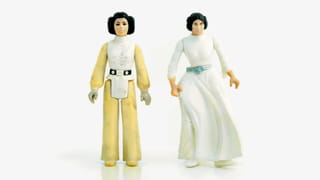Last weekend, during a now-rare sleepover with her cousins, I overheard my seven-year-old daughter saying: “When I was younger, everybody thought I was a boy.” I have no idea how this was relevant to whatever game they were playing, but she was telling the truth.
As a highly energetic toddler with cropped hair and no earrings, strangers inferred my child’s gender in the most common way: by assessing her appearance and behaviour, then assigning it to one of the two categories we are taught exist. I often dressed her in cargo shorts, T-shirts and sneakers because that was what was practical for such an active child. She looked and acted “like a boy”, so people would praise her for what they imagined to be the appropriate gender expression: curiosity, boisterousness and defiance.
Once she got old enough to announce her actual gender, the tune changed. In one particularly hilarious instance, she had been playing foosball (badly) with an attendant at an arcade, asking rapid-fire questions that he was only too happy to answer. When I walked over to check on her, he said, “Your son is so strong!”, to which my daughter responded, disgustedly, “I’m a girl!” It was as though someone flipped a switch in the man’s brain: he immediately snatched her hands away from the table and told her to go sit down because she “might break the controls”.

Hierarchies of knowledge
It has never been easy to reorganise or resist social norms and beliefs, but among the most difficult ones to reject are those at the root of the social system known as patriarchy. This system relies on a few core ideas to perpetuate itself, two of which are that gender is a fixed binary, and women are the inferior parties within it.
For generations, feminists have insisted that there is nothing fixed or predetermined about the roles that people are expected to play on the basis of our gender. We do this to claim rightful control over things as seemingly trivial as how we dress, or as monumental as bodily autonomy, access to education or citizenship.
Having any kind of marginalised identity means needing to know real, true and important things about the world that non-marginalised people can skate by without ever being aware of. Due to our different identities, we live in many overlapping worlds simultaneously. However, the most marginalised among us are forced to act as if only one of those worlds – the world of the most privileged – is real.
By virtue of my African heritage, I know things about racism that many will never quite grasp – like how you work through the futile rage that comes from entering a pool, only for white women to pull their children out of it. Because I’m queer, I know things about the impact of heteronormativity that go right over the heads of the average heterosexual person – like how easy it becomes to want to kill yourself when you’re not allowed to exist anyway.
And in the same way, transgender and gender non-conforming people know things about gender that most cisgender folks are light years away from realising. To survive unequal realities, marginalised folks often cultivate deep knowledge of how these realities actually function.
Unfortunately, hierarchies of human value also create hierarchies of knowledge. The people most likely to be marginalised by unjust social systems – and thus best placed to really understand them – are also those least likely to be considered credible “experts” on the subject. This is particularly true because the knowledge gleaned from marginalisation is invariably threatening to the system that produces it. Imagine if enslaved Africans had been consulted before it was decided that “drapetomania”, the desire to be free, was a mental illness. That wouldn’t have gone well for western economies.
To create hierarchies of humanity, we must distort people. Dehumanisation thrives by making it difficult for those considered less than human to know themselves, or be properly known by others. The systems that produce racism, sexism, homophobia, transphobia, ableism and classism are built on such distortions. They are then maintained by ensuring that the distorted version of the dehumanised group is framed as “who they really are”.
This type of misinformation is necessary for maintaining injustice. As long as we remain wilfully ignorant of who marginalised people are, we can claim legitimacy in denying their rights, dignity, and humanity.
It’s the perfect vanishing spell.

The magical world of gender
When I fell in love with Hermione Granger as a nine-year-old in boarding school, it felt like JK Rowling had the most expansive imagination in the entire universe. Even things that couldn’t exist – staircases with minds of their own, mirrors that held your wildest dreams, roots that screamed people to death – were as clear as day in her mind’s eye. In my childish estimation, there was nothing that Rowling could not imagine, no matter how unreal it might seem.
Twenty years later, I realised how wrong I was. Where gender is concerned, the limits of Rowling’s magical imagination are very real.
Ironically, Joanne Karen Rowling demonstrably understands that people who aren’t privileged by the gender binary can have unwarranted negative experiences, including losses of opportunity and income. When she stripped her real name of its gendered nature or used the pen name Robert Galbraith to improve her chances of unfettered success in a male-dominated industry, she subversively exposed some of the injustices of gender as it usually functions.
Yet, despite this, she seems determined to protect the gender binary in order to delegitimise transgender women. If Rowling is to be believed, there is great danger in reorganising collective understandings of gender, sex and society to incorporate the knowledge and needs of gender non-conforming people. The world she knows is one in which only cisgender women can legitimately challenge the gender binary, and she is willing to defend this world with everything she has: her public platforms, her literary might, and even her legal team.
Rowling’s recent manifesto explaining why she feels the need to be so “gender critical”, as her positions are frequently called, is full of unverifiable statistics and transphobic dog whistles.
She ascribes a “terrifying” power to trans rights activists, based on one UK woman being told in court that it was not discriminatory for her temporary contract to not have been renewed after she said transmisogynistic things at work. She talks about the “demonstrable harm” being done by the trans rights movement, with nary a demonstration in sight. She alleges that the trans-inclusive movement provides unprecedented cover for predators, as if the Catholic church doesn’t exist. She claims that people being able to use whichever changing rooms they like will induce men to start pretending to be women, just so they can commit acts of sexual violence.
It’s so absurd it’s almost hilarious: when have cisgender men ever needed to go to such lengths to violate women?

Ignorance is not bliss. It’s power
But here’s the thing about people like Rowling: they’re loud and wrong on purpose. They use debunked talking points and discredited information, they exaggerate and misrepresent facts, and they claim they are being silenced even when they are manifestly not.
And they can do all this and get away with it because knowledge may be power, but, in the hands of the already powerful, ignorance is power too.
As a queer feminist in a socially conservative country like Nigeria, I have often found myself in cyclical and unproductive debates about gender. Despite the abundance of evidence to the contrary, many people insist that gender is a fixed binary that all people are wedded to from birth. It’s an argument that I find alarmingly dishonest.
We put babies with penises in blue clothes and babies with vulvas in pink. Then we tell ourselves that’s because of their gender, even though babies are functionally genderless since all they do is eat, poop, and cry.
When a pink baby grows up and acts in ways we would expect from the baby dressed in blue, we use the word “tomboy”, which is an uncontested descriptor of behaviour that supposedly belongs to “the opposite sex”. In the reverse case, we say “sissy”, which lacks the positive connotation since, you know, pink is an inferior colour. Most of us don’t question this, even though as recently as 100 years ago in the US – where this culture of colour-coding originated to drive consumer behaviour – pink was actually reserved for penises and blue for vulvas.

How ignorance is weaponised
Watching an Instagram video recently, my daughter asked me if Bobrisky, the most visible trans woman in Nigeria, was a boy or a girl because her nanny had told her Bob was a boy. I was mildly surprised by the question. Even though my household is very queer and trans-positive, my child is still growing up in a cissexist society where heterosexuality is the enforced norm.
I replied by saying lots of people once thought Bobrisky was a boy, but she told us a few years ago that she’s actually a girl. My daughter seemed confused at first, but like many other girls, she loves pretty makeup and dramatically long hair and understands them as markers of femininity. For her, if someone looks like a girl and says she’s a girl, then she’s a girl. “So she’s a girl? Why did my aunty say she’s a boy? I like her hair. Will you buy that type of hair for me?”
My daughter’s initial confusion was relatively harmless and easily cleared up once I presented her with new information. But this isn’t the case with people like JK Rowling, who insist on loudly repeating dangerous untruths about gender. For such people, there is nothing to be gained from knowledge. Their ignorance is both the source and the hallmark of the power that they wield when discrediting trans realities.
When a person can only maintain their position by propagating falsehoods about those they imagine to be undeserving of social space, it is a waste of time to try to “educate” them. Tens of thousands of people have tried to provide Rowling and other cissexist people with more knowledge about gender, but they haven’t budged.
Because the ignorance is the point.

Nobody owes these assholes an explanation anyway
Forty-five years ago, Toni Morrison famously said, “The very serious function of racism is distraction. [ … ] It keeps you explaining, over and over again, your reason for being. [ … ] None of this is necessary. There will always be one more thing.”
We can spend a lot of time explaining that inclusive language like “people who menstruate” is used to make room for all people who have menstrual cycles (which includes trans men but not the trans women who are so often vilified in these conversations). We can repeatedly point out that the words “cis” and “trans” exist precisely to highlight the important differences between those experiences of womanhood. We can debunk the myth of the geographical and historical universality of the Eurocentric binary.
And still, it never seems to be enough.
Luckily, we don’t have to know everything about everyone’s realities to respect them, not tell lies about them, or believe that they know best what their needs are. We just need to do our bit to ensure they are able to lead dignified, free and safe lives, even when that bit is simply getting the hell out of their way. The root of respect is not the full understanding of other people; it is the recognition of people’s non-negotiable humanity.
Regardless of our identities or how we navigate our different worlds, we all have the same rights to self-determine, live in community with others, enjoy access to the opportunities we need to survive, and write our own (magical) narratives. It can never be anyone’s place to tell another person or group of people that yielding space for their needs to be met is a danger to others. Only unrepentant bigotry results in such claims.
By making respectful space for one another and learning from those who have the kinds of knowledge that we could never gain on our own, we become able to see all the different worlds that exist in this one that we share. And isn’t that the strongest magic of all?

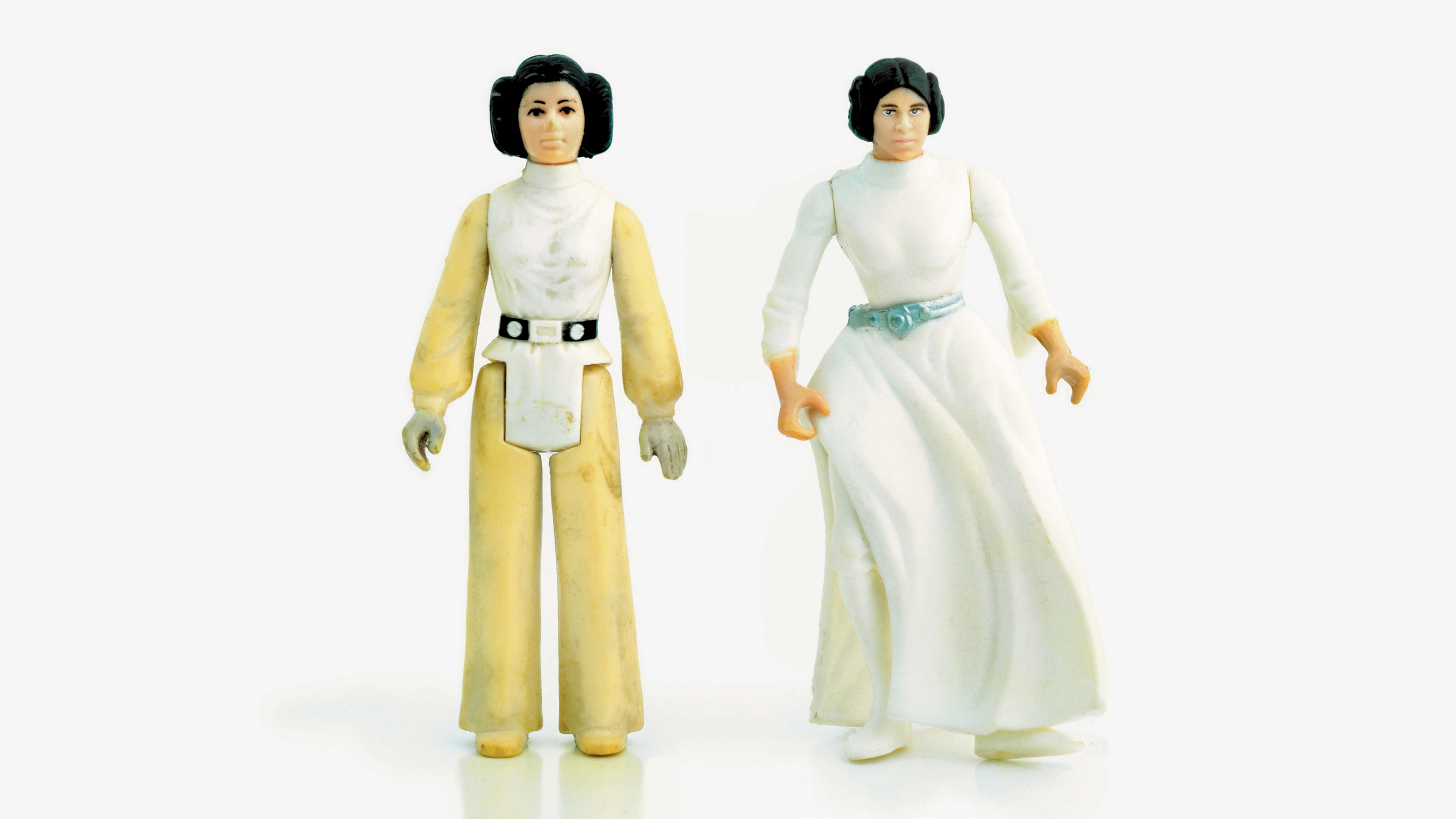 About the images
When looking through the extensive archive of work by married couple/collaborators Andrea Robbins and Max Becher, it dawned on me that they always shine a light on some kind of deeply rooted stereotype. They show that identity is multifarious, transformative, and most of all culturally and historically bound. The series Figures shows how the stories we tell, the toys we give and the movies we show our children shape the realities they live in. And how much difference a decade and a half can make. (Lise Straatsma, image editor)
About the images
When looking through the extensive archive of work by married couple/collaborators Andrea Robbins and Max Becher, it dawned on me that they always shine a light on some kind of deeply rooted stereotype. They show that identity is multifarious, transformative, and most of all culturally and historically bound. The series Figures shows how the stories we tell, the toys we give and the movies we show our children shape the realities they live in. And how much difference a decade and a half can make. (Lise Straatsma, image editor)
Dig deeper
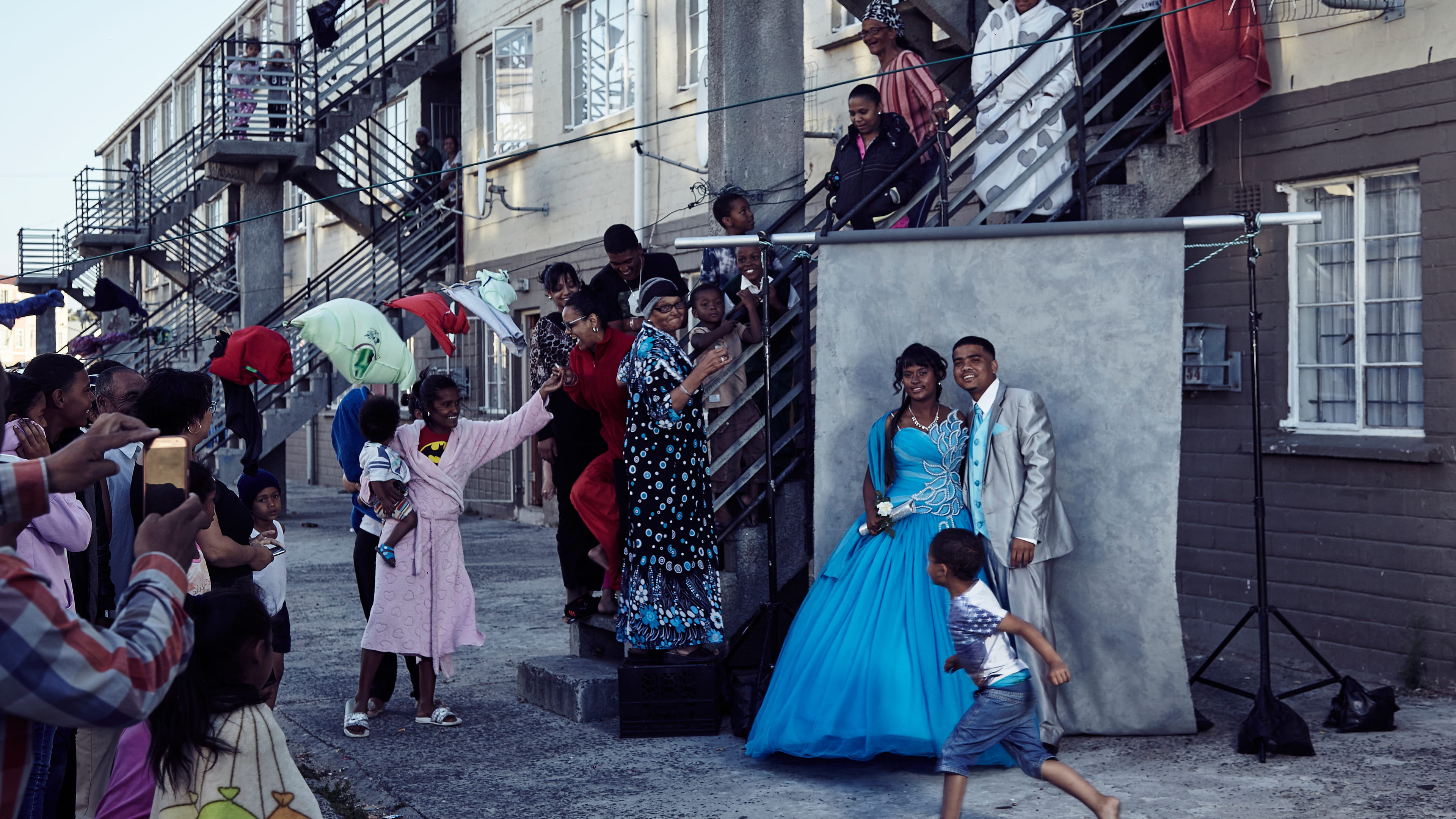 If we value life so much, why do we care so little about the people who carry it?
In many places, religious and political attitudes make pregnancy difficult and dangerous. So while some defend ‘the sanctity of life’, poor reproductive healthcare causes indignity, suffering, and death. If we really value life, we need to make affordable, accessible healthcare a human right.
If we value life so much, why do we care so little about the people who carry it?
In many places, religious and political attitudes make pregnancy difficult and dangerous. So while some defend ‘the sanctity of life’, poor reproductive healthcare causes indignity, suffering, and death. If we really value life, we need to make affordable, accessible healthcare a human right.
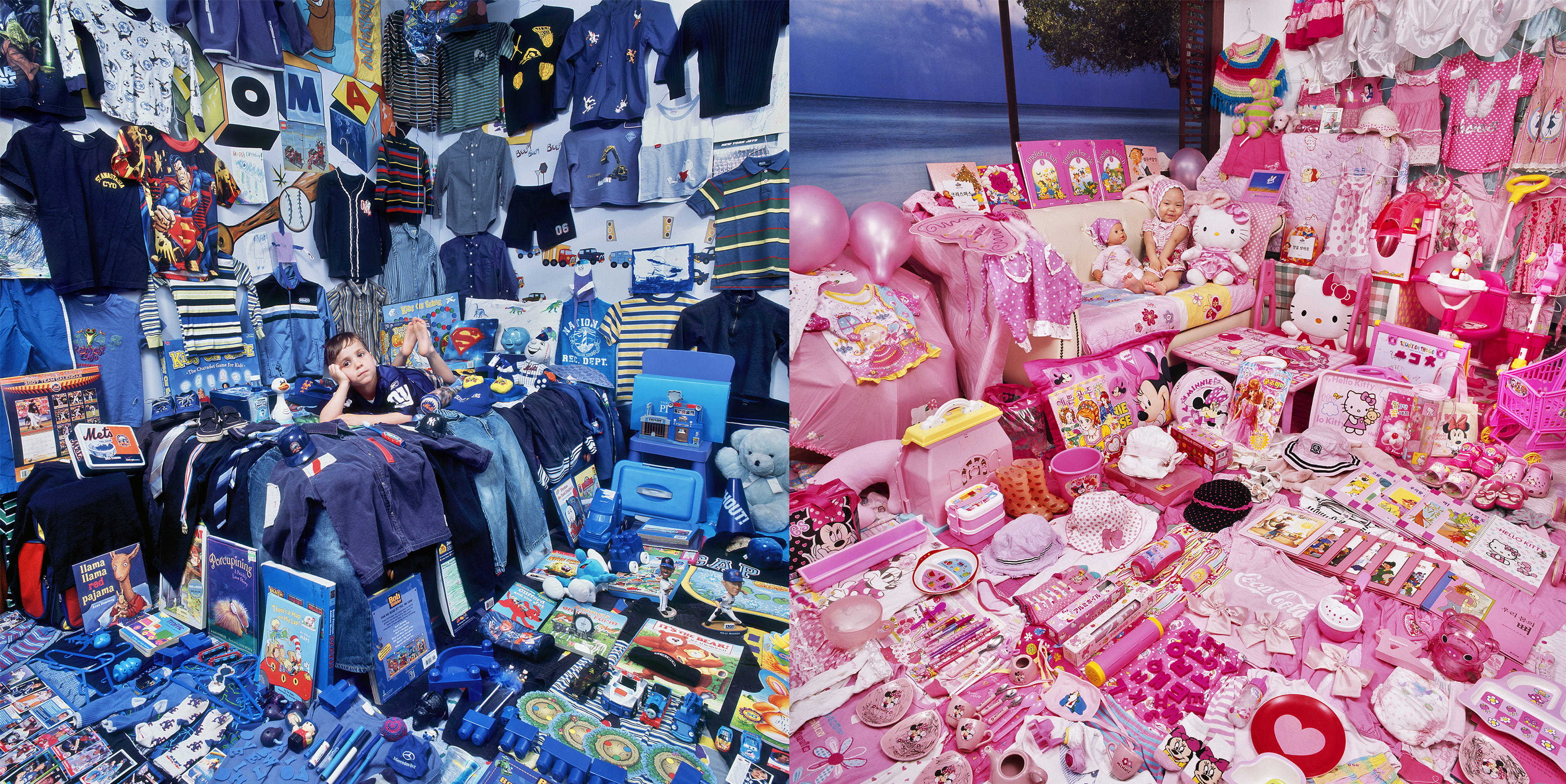 From boys to feminists: raising a gender-free child
Wanting to raise a feminist son has forced me to confront some of my own uncomfortable biases. But a world without gender benefits boys just as much as girls.
From boys to feminists: raising a gender-free child
Wanting to raise a feminist son has forced me to confront some of my own uncomfortable biases. But a world without gender benefits boys just as much as girls.
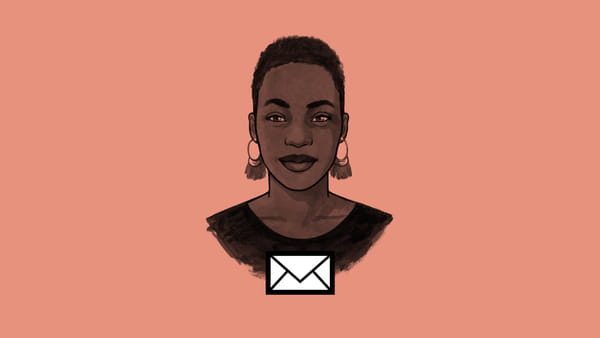 Want to receive my newsletter in your inbox?
Follow my weekly newsletter to receive notes, thoughts, and questions on the topic of Othering and our shared humanity.
Want to receive my newsletter in your inbox?
Follow my weekly newsletter to receive notes, thoughts, and questions on the topic of Othering and our shared humanity.


